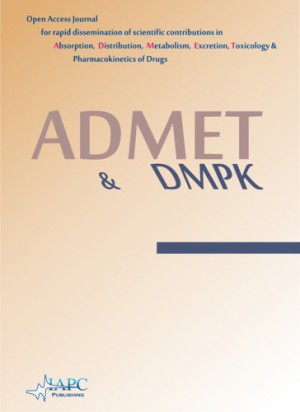
ADMET & DMPK
Yazarlar: Alex Avdeef, Elisabet Fuguet, Antonio Llinàs, Clara Ràfols, Elisabeth Bosch, Gergely Völgyi, Tatjana Verbić, Elena Boldyreva, Krisztina Takács-Novák
Konular:-
DOI:10.5599/admet.4.2.292
Anahtar Kelimeler:Shake-flask solubility,Intrinsic solubility,Water solubility,Buffer solubility,Thermodynamic solubility,Bjerrum curve,CheqSol,Potentiometric Cycling for Polymorph Creation,Henderson-Hasselbalch equation,Aggregates,Oligomers,Micelles,Hydrates,Salts,Polymorphs,Cocrystals
Özet: This commentary addresses data quality in equilibrium solubility measurement in aqueous solution. Broadly discussed is the “gold standard” shake-flask (SF) method used to measure equilibrium solubility of ionizable drug-like molecules as a function of pH. Many factors affecting the quality of the measurement are recognized. Case studies illustrating the analysis of both solution and solid state aspects of solubility measurement are presented. Coverage includes drug aggregation in solution (sub-micellar, micellar, complexation), use of mass spectrometry to assess aggregation in saturated solutions, solid state characterization (salts, polymorphs, cocrystals, polymorph creation by potentiometric method), solubility type (water, buffer, intrinsic), temperature, ionic strength, pH measurement, buffer issues, critical knowledge of the pKa, equilibration time (stirring and sedimentation), separating solid from saturated solution, solution handling and adsorption to untreated surfaces, solubility units, and tabulation/graphic presentation of reported data. The goal is to present cohesive recommendations that could lead to better assay design, to result in improved quality of measurements, and to impart a deeper understanding of the underlying solution chemistry in suspensions of drug solids.
Dergi editörleri editör girişini kullanarak sisteme giriş yapabilirler. Editör girişi için tıklayınız.